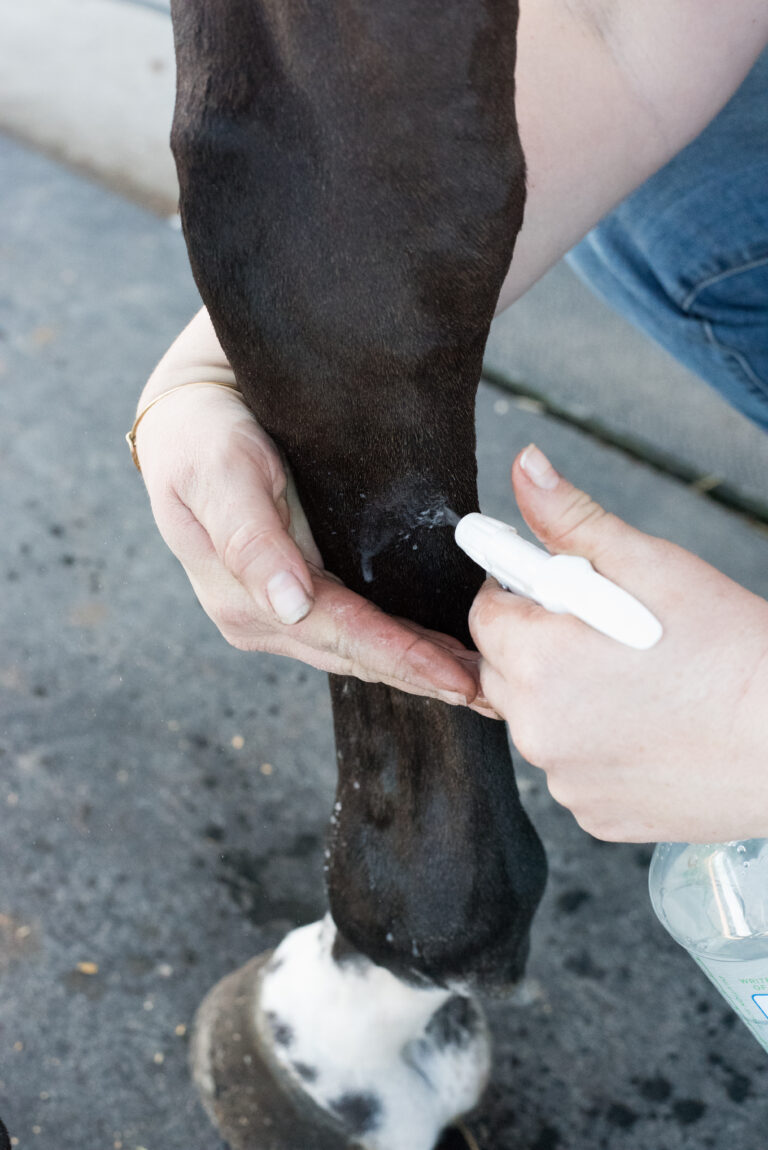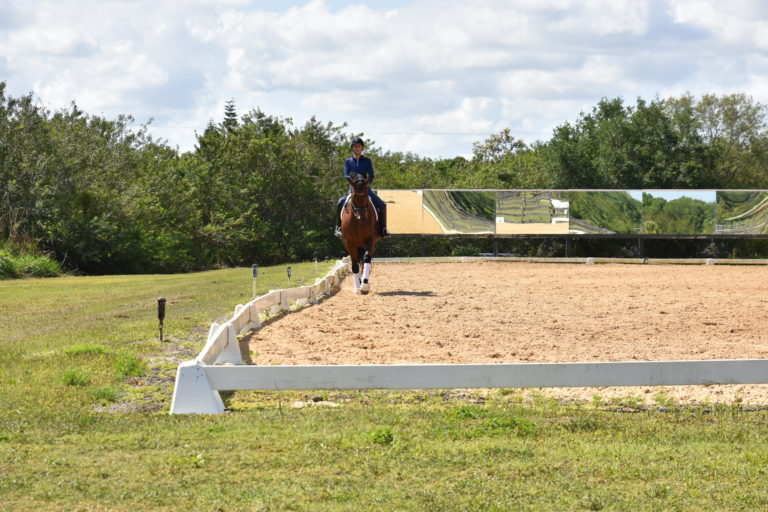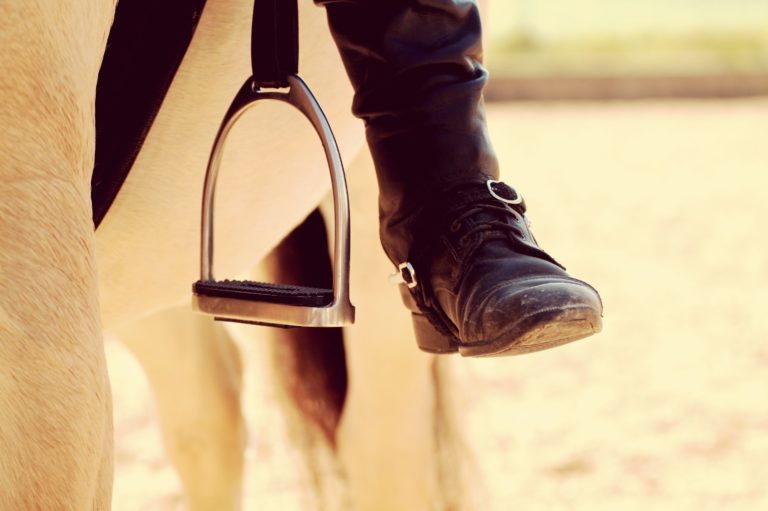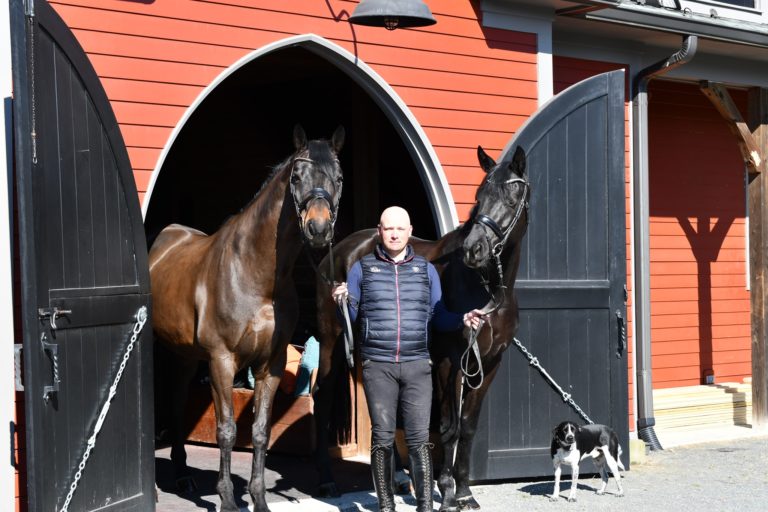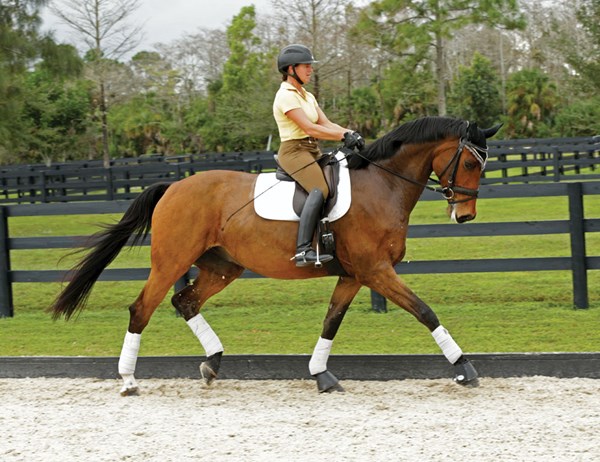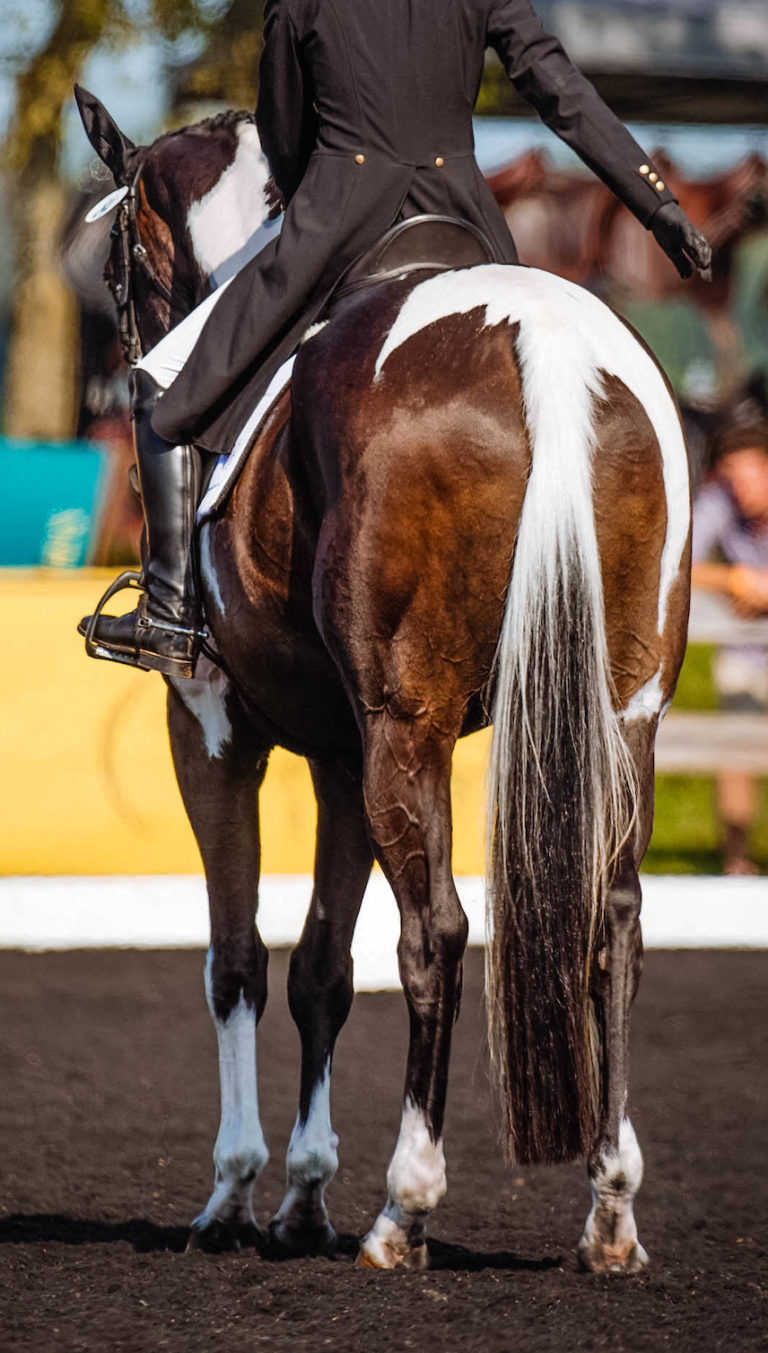Q: “The warm-up ring is a very stressful place for me at shows. I actually find it even more stressful than being in the competition ring due to high traffic, fresh horses and the general tension of the atmosphere. I know that getting out there and exposing myself to it more would help, but it’s hard to recreate that kind of environment just for practice purposes. How can I reduce my stress level in warm-up?”
A: Happy New Year! I hope you had the kind of holiday season you wanted and I hope that you are now full of inspiration for 2018. This month’s question sounds like it is only for those competing (in warmer climates) so if you are in a colder climate and not ramping up for competition right now, use this as training for any issue you find difficult to train for.
Preparation is the key to this answer but sometimes finding ways to prepare can be challenging. The first thing to know is that reducing stress is not the answer to this problem. I have yet to find a way to continue to improve, achieve and do the things we love without increasing stress, and, unfortunately, the only way to reduce stress is to remove the stressor, which for most of us, is not a realistic or satisfying answer. So, we have to become better at managing stress in order to be able to perform better.
That being said, how do we deal with stress or increasing amounts of stress? The answer is found in the before and after of stress: how do you prepare and how do you recover? The warm-up ring is a very dynamic environment and certainly can be difficult to prepare for but that doesn’t mean there aren’t ways to do so.
One way to prepare for the high traffic and high energy of the warm-up ring is to simulate it at home. Try to make it a team or barn event and have your trainer help you design it safely. Create as much tension as possible by braiding your horse, wearing show clothes and having times to be warmed up for. This creates the environment but you still have to prepare for it.
The two best ways to do this are mental exercises and they include writing and visualization. If you have followed me at all, then you know I love to use writing as an exercise for preparation and creation. Write down all the things that unsettle you during the warm up at a show. Be as specific and descriptive as possible, knowing this might take a few uncomfortable days to fully capture. Once you have a good list, then take each item and look for a strategy, using your trainer as a resource here.
Then comes the practice, both on your horse and in your mind. Visualization is an excellent tool for preparation and can be done anywhere, making it a logistical win. It is important to know that visualization is a skill that has to be developed so when you sit down to visualize, it will be difficult for the first week or so. Staying with it is the only way to get better at it! You didn’t learn shoulder-in or flying changes in one day so expect a learning curve with your mental practices as well. When you visualize, make sure to incorporate how you will feel as well as what you will see. Allow yourself to become nervous or unsettled in your images because that is what you will deal with in real life. The key is to see yourself successfully dealing with those stressors and having a great warm-up leading to a great test. Use visualization to prepare both for your practice sessions on your horse and the actual show days. Make sure to use this practice daily for a few weeks in order for it to become successful.
While we are very good at finding ways to stress ourselves daily, we are not as good at recovering from it or some fuel back in the tank. We tend to go from one thing to another to another and barely take a breath in-between. Finding ways to stop, rest, refuel or recharge is an important part of dealing successfully with stress. In physiology textbooks, they define recovery as preparing for the next bout of stress. So, if you know the next round of stress is coming, how can you get a little relief so that you are fully energized to tackle it? Begin to investigate ways to help you recover from your daily stress—since it’s not going away, you can make it easier to live with. Stay focused, stay committed and, most of all, be kind to yourself.
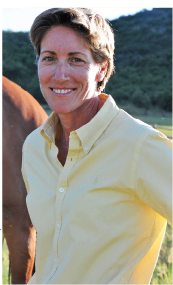
Jenny Susser has a doctoral degree and is licensed in clinical health psychology, specializing in sport psychology. A four-year all-American swimmer at UCLA, she swam on two national teams and at the 1988 Olympic Trials. She has worked with athletes of all sports and ages—collegiate, professional, international and amateur. She was the sport psychologist for the 2010 WEG South African Para-Dressage Team and the 2012 U.S. Olympic Dressage Team. Dr. Jenny is also a performance coach with Human Performance.


